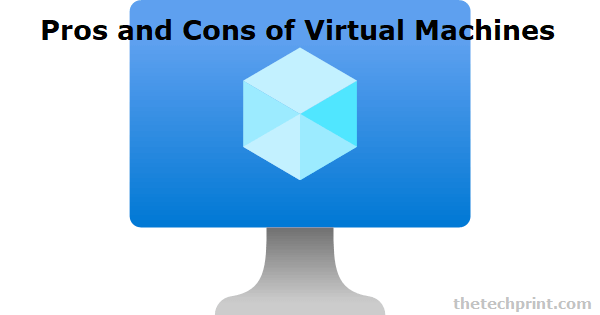The Virtual Machine Market is expected to reach US$ 119.89 billion, with a CAGR of 19.7% between 2021 and 2031. Virtual machines are a great way to reduce hardware dependency and increase flexibility and scalability in your data center. With virtualization, you can run multiple virtual machines on a single physical server, saving you money on hardware costs. However, you should be aware of some potential downsides to virtualization before implementing it in your data center. When deciding whether or not to implement them in your data center, weigh the pros and cons of virtual machines carefully to see if it is the right decision.
Reducing overall IT costs in the long-term, the following pros of Virtual Machines are the most commonly cited:
Virtual machines are incredibly flexible; you can easily add or remove them as your needs change. Depending on your current needs, you can quickly scale up or down the number of virtual machines you have running. This flexibility can save you a lot of money in the long run, as you won't have to purchase new hardware whenever your needs change.
You can reduce your overall dependency on hardware by running multiple virtual machines on a single physical server. If one piece of hardware fails, you can simply move your virtual machines to another part of the hardware without experiencing any downtime. This can greatly benefit mission-critical applications where downtime is not an option. This reduction in downtime and costs can be one of the notable pros of virtual machines.
Virtual machines can also improve your disaster recovery capabilities. If your primary data center goes down, you can quickly spin up virtual machines in a secondary data center to keep your business running until the primary data center is back online.
Virtual machines can run on multiple operating systems, which can be a massive benefit if you support various applications requiring different operating systems. For example, you could run a Windows virtual machine for your accounting software and a Linux virtual machine for your web server.
Virtual machines can offer increased security over physical servers as each virtual machine can be isolated from the others. If one virtual machine is compromised, the others will not be affected. Additionally, you can use security features like firewalls and intrusion detection systems to further secure your virtual machines.
You should be aware of some potential cons to virtual machine before implementing it in your data center. These include:
Virtual machines can be more challenging to manage than physical servers, as you need to keep track of multiple virtual machines running on a single physical server. This can add complexity to your IT infrastructure and require additional staff to manage it effectively.
Because virtual machines depend on the underlying hardware, if the hardware fails, all of the virtual machines running on it will also fail. This can lead to increased downtime for your applications and data and can be among the considerable cons of virtual machines.
To get the most out of virtualization, you'll need to purchase specialized hardware designed for running multiple virtual machines. This can be a significant upfront cost that may not be feasible for all organizations.
Virtual machines can also create potential security risks, as you are essentially running multiple operating systems on a single piece of hardware. If one operating system is compromised, the others may also be at risk. Therefore, it's essential to have strong security measures in place to protect your virtual machines.
Not all applications are compatible with virtualization, so you'll need to ensure that the applications you want to run are supported by the virtualization software you're using. Otherwise, you may need to run them on physical servers, which can negatively impact your overall cost savings.
Conclusion on the pros and cons of Virtual machines
So, Are virtual machines the best thing since sliced bread? In some cases, they can be, but you should consider a few drawbacks before making the switch. Now you've looked at both the pros and cons of virtual machines, now it's up to you to decide if they're right for your business.
